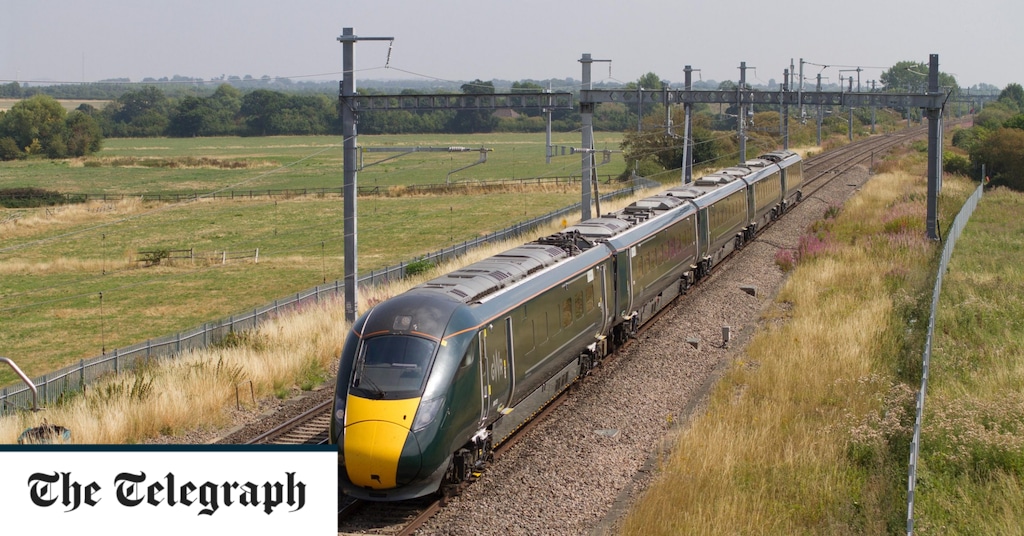Rail chiefs are on the cusp of privatizing thousands of thousands of trackside phone lines in a move that will pave the way for commuters to get faster on-board internet coverage.
Some 10,000 miles of phone cables running next to railway lines are to be sold off under proposals also intended to increase broadband speeds for millions of households.
The winning investor will commit to upgrading the existing infrastructure and building 250 new mobile phone masts next to the tracks to help eradicate so-called 5G “notspots”.
Officials launched an auction to sell off the phone lines a year ago, slapping a £1bn price tag on the sell-off. Two investment groups have now been selected to go into the final round.
The first includes Neos, co-owned by SSE, the FTSE 100 energy giant, which is bidding in conjunction with Spanish firm Cellnex, one of Europe’s biggest telecoms companies, according to City sources.
They will compete against a group that includes mobile phone company Nokia, broadband provider Virgin Media, and American engineering consultancy Jacobs.
The sell-off marks a key moment for operator Great British Railways, a new public body which was mocked as “the return of British Rail” when it was launched by Grant Shapps in May last year.
Critics argued that the state-owned organisation, which has brought track and trains under the control of one entity for the first time in nearly two decades, was little more than “nationalization by stealth”.
But sources close to the phone line sell-off argue that it shows Great British Railways is eager to harness private sector investment to revitalize the railways.
The upgrade of old British Rail phone lines – some almost a century old – will act as a key plank of Government plans to drastically improve rural broadband connectivity.
Whitehall sources say improving internet reception on board trains is a key plank of Treasury thinking to increase economic productivity as it will allow commuters to begin their working day as soon as they step foot on a train.
It will also provide a boon to the leveling up agenda, allowing people to live further away from their offices, safe in the knowledge that they can finish work on the journey home.
Many of the trackside phone lines are decades old and made of copper. Upgrading them to full-fibre lines is also expected to improve the network by leading to fewer signal failures.
Once the upgrades are completed, officials expect more than 50pc of the capacity will be left spare for investors to run their own telecoms services.
The sell-off of rail assets follows the controversial decision by Network Rail to offload its railway arches to US private equity giant Blackstone in 2018 for £1.5bn.
The sale sparked controversy among hundreds of retail tenants that let the arches from Network Rail, with fears that they would face sharp increases in rent from their new private sector landlords.
Boris Johnson has pledged that 85pc of the country will have full-fibre broadband coverage by 2025.
Great British Railways is in its formative stages, with its set up being overseen by Network Rail chief executive Andrew Haines. Network Rail launched the phone lines auction a year ago and remains involved in the sales process.
.
